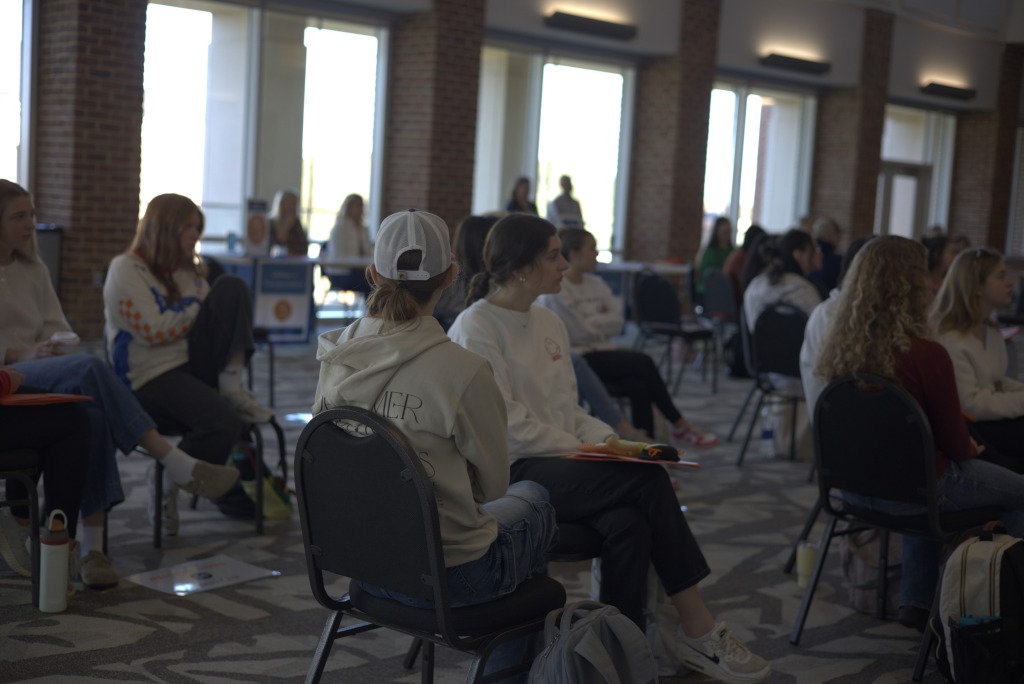Liberty University’s Family and Consumer Sciences (FACS) Department hosted the Cost of Poverty Experience Oct. 21 for its students in the Montview Alumni Ballroom.
The event kicked off at 9:30 a.m. with more than 100 FACS students, faculty members and staff participating in the simulation’s activities.
“We wanted to do something that could really broaden (the FACS students’) scope,” Janet Brown, department chair of FACS, said.
The Cost of Poverty Experience (COPE), run by Five18 Family Services, was an immersive role-play simulation that allows its participants to experience poverty by dealing with some of the challenges actual families have faced.
“We want to have our students understand not just statistics of poverty … but also what it would be like to be an individual or even a family member that encounters living under the poverty level,” Brown said.
Brown credited the Illuminate Grant through the Center for Teaching Excellence for making COPE possible at Liberty.
She emphasized that while FACS students learn about poverty and the statistics surrounding it from an academic perspective, gaining firsthand understanding is vital for someone who plans to work with families going through poverty-related struggles.
“(FACS students) are working with children, teenagers, parents and elderly — those that are touched by the economic struggles … even generational poverty,” Brown said.
The role-play aspect of COPE is geared toward putting students in random, but real situations and having them face the stressors that might appear in their role’s life.
“One of our students might go in, and they’ll be a 60-year-old veteran facing decisions on how to meet resources and needs while at the poverty level,” Brown said. “The COPE directors will give students a bio — whatever is assigned to them and the needs for transportation, housing, utilities and more…”
Brown described how students go to different designated help centers at the event, like the church, homeless shelter, pawn shop and more. However, the event is designed to make it increasingly difficult for students to get the resources they need because of their circumstances.
“In my Families Under Stress class … we learn the ABC-X model,” Brown said. “You identify what is the stressor event, and then what are the resources needed for coping in that situation. And (the) resources (are) one way that families can create resilience … in order to … help them through stressors.”
For those in poverty, resources are not always easy to come by, and Brown noted that time is a factor that adds a lot of weight to the overall experience.
“If we couldn’t get something accomplished today, such as an appointment, to meet a need or pay a bill, but we could work it out tomorrow … for many, we could probably have a car or money to meet the need,” Brown said. “Or we’d have a place to stay at (the) night before we get there. Whereas for some others who might not have those benefits or privileges … (they) don’t know how (they’re) going to get back to that appointment or pay their bill.”
Senior Elya Makaroff said COPE helps share the perspective of families, specifically those of parents who are going through heavy financial strain.
“This event is looking at … how (poverty) affects the role of the parent as they’re taking care of children, and the different family dynamics — not just of the individual, but of the family unit,” Makaroff said.
Brown said Christians are people helpers, and those in FACS aim to do just that.
Gallagher is a feature reporter.
